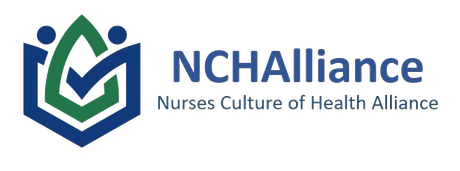Please call to leave a voicemail, or send an email to get in touch with us. | SMS/Text messages are not currently supported. | Thank you for choosing NCHAlliance!
Trailblazing Better Health
The Nurses Culture of Health Alliance is on a journey to reduce the incidence of health disparities and health inequity by inspiring, educating, engaging and empowering individuals, families, and community groups to lead their healthiest lives.
We invite you to join NCHA in trailblazing better health!
Welcome and Introduction to NCHA
Welcome from the Founders of the Nurses Culture of Health Alliance.
You are invited to join colleagues and participate in a movement to unharness and unleash the power of evidence-informed primary care nursing practices by RNs and Advanced Practice Registered Nurses throughout the Commonwealth. This will provide context for a movement, which began with the knowledge that Massachusetts healthcare law lacked evidence of incentives or rewarded people who made lifestyle choices that assured their optimal level of health. In 2013, no one could have anticipated the future when Dr. Eleanor Vanetzian volunteered to analyze the relatively new healthcare law for her colleagues serving on their professional association’s Health Policy Committee. From the beginning of this endeavor, Dr. Vanetzian emphasized the critical need to define, initiate and promote foundational ideas which evolved to become the Nurses Culture of Health Initiative. These emphasized the responsibility of nurses for health promotion and illness prevention in all settings with attention to determinants of health. Vision and strategies to match early ideas were initially explored during informal discussions and email conversations by nurses interested in health and healthcare reform. An exploratory group of highly accomplished nursing professionals became Founders of the initiative, which over time became the Nurses Culture of Health Alliance or NCHA.
CONTEXT FROM AN INTERNATIONAL PERSPECTIVE FOR THE MOVEMENT AT HAND
Consensus among national and international healthcare authorities who analyze and publish healthcare data reveals that people in this country spend more on healthcare than other developed countries, yet people in this country are sicker than elsewhere. Attribution for the source of the problem has been levied in many directions; two are of interest to the work at hand.
- The over-medicalization of healthcare. Excessive pharmaceutical and surgical interventions have built a medical-industrial complex.
- Nursing education, which is responsible for preparing graduates to provide nursing care across the continuum of care from wellness to illness, has historically focused on the care of individuals, families and communities who suffer with medically diagnosed illnesses. This reflects professional nursing’s social policy of responding to societal need.
PROFESSIONAL NURSING PRACTICE AND THE NATION'S HEALTH
America’s 3.6 million registered nurses (RNs) care profoundly about the health and welfare of our nation. As the largest group of health care professionals and the nation’s most trusted profession, nurses are a valuable resource for improving the nation’s health care delivery system (www.nursingworld.org). Carefully conceived, collaborative nurse-led initiatives may begin a process for developing multiple programs by nurses in collaboration with cross-sector allies to address the problem and acknowledge its complex nature. The Nurses Culture of Health Alliance proposes to:
- Inspire, educate, engage and empower nurses to share, adapt and transform their collective knowledge of acute, episodic, and restorative nursing to that of primary care; health promotion, illness prevention.
- Develop interprofessional, group nursing practices that embed nurses from entry to advanced practice levels in communities.
- Establish group and independent practices that provide access to nursing care essential to building a culture of health at the community level.
The expected outcomes of this movement are enhanced quality of life; the most costly episodic illness care is reduced or eliminated and people attain or maintain their highest level of function and optimal health across cultures and lifespan.
Payment System Reform: Universal Access to Primary Healthcare
What if partial or full funding for primary healthcare were leveraged in town or city budgets as a right similar to the right for fire and police protection? The rationale being that the right to health is a human right and similar to those for fire and police protection, which also come with personal responsibilities.
- As citizens, we install fire alarms and secure doors and windows with locks to fullfill our responsibility for those protections.
- Personal responsibility for healthcare is fullfilled by willingly choosing to promote optimal health and prevent foreseeable illness empowered by knowledge and recommendations proposed by primary healthcare providers.
Healthy populations foster healthy environments for children to develop into healthy adolescents and adults aging into older adulthood. Return on Investment is realized in all aspects of high quality of life, reduced utilization of hospital emergency room resources, reduced insurance premium payments and improved workplace performance.
The NCHA provides an opportunity for RNs and APRNs, independently or as members of specialty practice associations to collaborate with colleagues and cross-sector allies by forming Communities of Practice. Communities of practice are formed when people engage in a process of collective learning in a shared domain of human endeavor. A network of nurses helping each other learn about a new form of nursing practice that is not routine, yet is a shared concern or passion for something they do. Participation in a Community of Practice enables them to learn how to do it better as they interact regularly on nchalliance.org, a virtual platform for practice.
More about Communities of Practice when RNs join NCHA as designated Leaders of specific Initiatives they wish to pursue.
Phone: (413) 345-5257 | Email: Ellie@NCHAlliance.org | Business Hours: Mon - Fri: 7:00 am - 7:00 pm | Sat: 7:00 am - 03:00 pm | Sun: Closed
Fully Licensed, Bonded, and Insured



